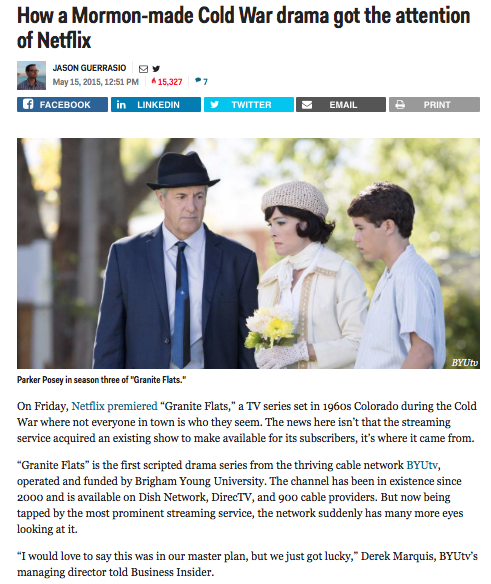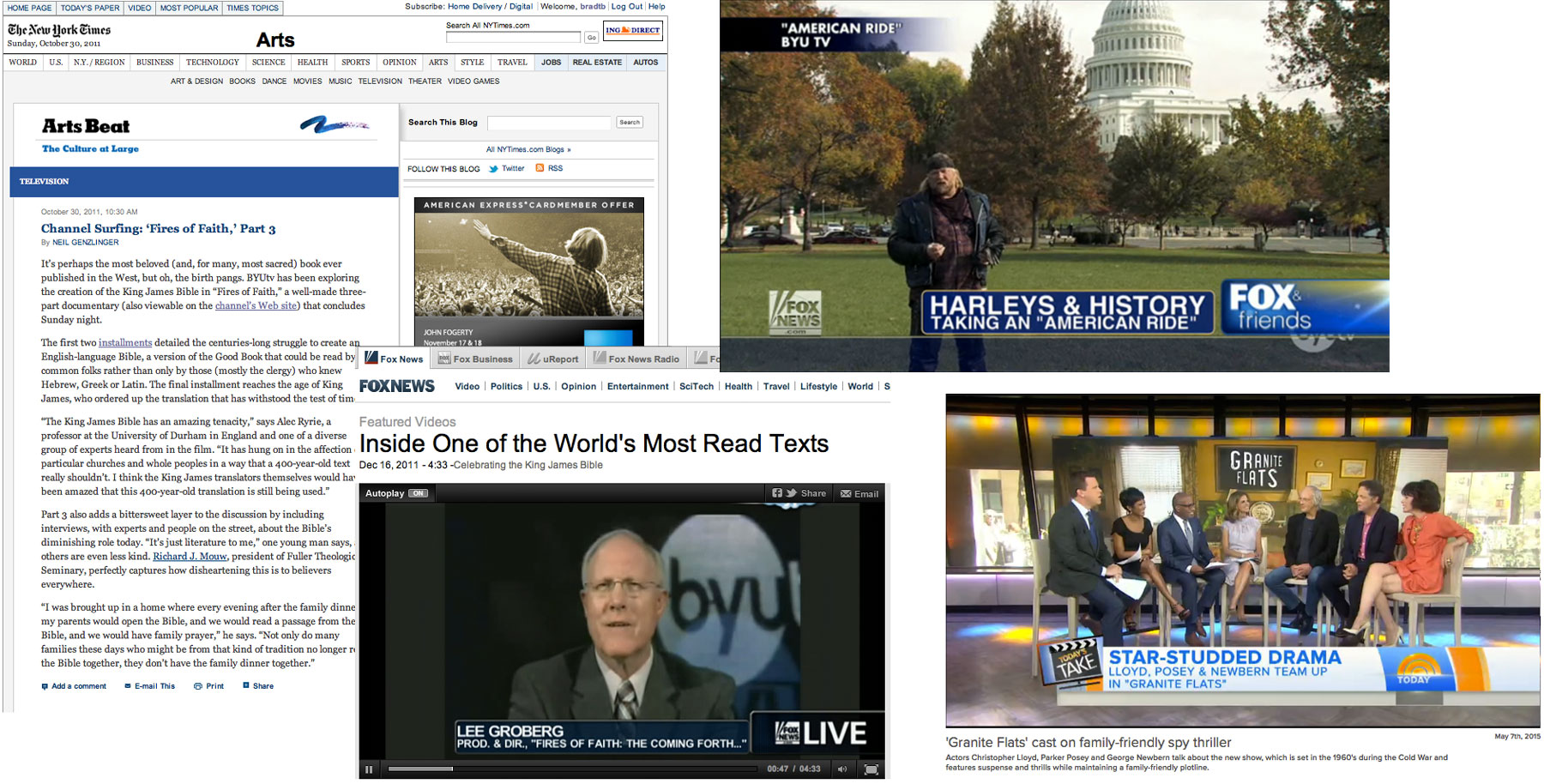One Original Show At A Time


The Challenge
Brigham Young University approached Thatcher+Co. in 2011 to raise the national visibility of BYUtv, which had been largely under the radar to that point.
In order to broaden the station’s branding and viewership across a variety of audiences and target markets, Thatcher+Co. designed multiprong campaigns for a number of the station’s flagship programs, including Fires of Faith, American Ride, The Song that Changed My Life, Granite Flats, Handel’s Messiah and Relative Race.
Through a combination of national, local and special-interest beat outreach, relationships were formed with reporters and outlets could move the needle with each show’s target audience. This approach has not only spurred interest in the station’s world-class programming, but it has attracted donors behind additional programming.
With each show having received major media attention, the station continues to grow viewership as a nationally-recognized brand that encourages viewers to “see the good in the world.”

The Results
American Ride, which taped episodes in local communities around the nation, was regularly featured in local papers and broadcast shows during its run. The show was also covered by the American Press and Fox & Friends.
Granite Flats, BYUtv’s first original scripted drama series, was covered by The Today Show, Business Insider, Variety, The New York Times, Deadline Hollywood and more.
Fires of Faith was featured in The New York Times, The Huffington Post, USA Today and many other national and local print, digital and broadcast outlets.
The Song that Changed my Life was publicized across specialized interest groups through each episode, and attracted coverage from a broad range of national and music/entertainment outlets, like Playbill, The Washington Post, Idol Chatter in USA Today, Tune In Tonight (Universal UClick syndicate), About.com and more.
Relative Race, BYUtv’s first family history-based competition reality series, garnered coverage in The New York Times, Parade magazine and TV.com, as well as on local broadcast and additional national outlets.
Handel’s Messiah received favorable reviews in The New York Times, the Los Angeles Times and Cablefax, and was also featured in national and local print, online and broadcast media.






